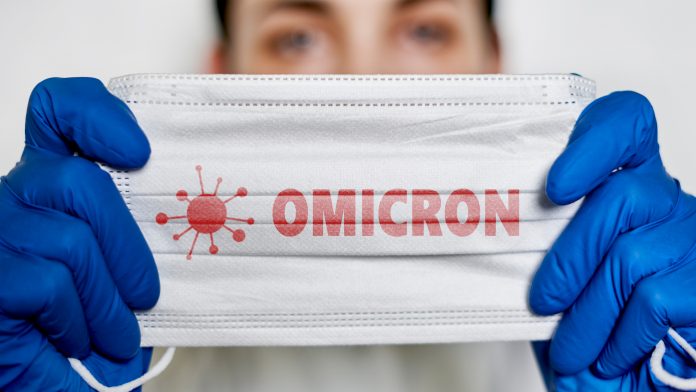
One of the earliest studies to date of the Omicron Covid variant has revealed that previous COVID-19 infection and vaccinations offer some protection against the new strain of the disease.
An investigation conducted by experts at the National Institutes for Food and Drug Control in China has illuminated that people previously infected with COVID-19 and those who have received their vaccinations have a ‘stronger than basic’ defence against the Omicron Covid variant. The World Health Organization (WHO) recently classified Omicron as a variant of concern, with early research suggesting it may be more transmissible than other strains of COVID-19.
The study’s findings are published in Emerging Microbes & Infection.
Evading immunity
The novel in-vitro analysis of the Omicron Covid variant suggests that, compared to other strains, it has a significantly stronger ability to evade the protection gained from previous infection or vaccination. Furthermore, the research indicates that although a third vaccine dose can enhance immunity, that protection from Omicron may be compromised, although further research is required to validate this.
Youchun Wang, the lead author of the research and Senior Research Fellow from the National Institutes for Food and Drug Control in China, believes the results support recent findings in South Africa that the Omicron Covid variant can easily evade immunity.
He said: “We found the large number of mutations of the Omicron Covid variant did cause significant changes of neutralisation sensitivity against people who had already had COVID-19.
“However, the average ED50 (protection level) against Omicron is still higher than the baseline, which indicated there is still some protection effect observed.”
However, the team do express caution, as the antibody protection provided by previous infection and vaccinations starts to wane over a period of six months, meaning the Omicron Covid variant may be able to escape immunity better than other strains.
Dissecting the Omicron Covid variant
The researchers examined 28 serum samples from patients recovering from the original SARS-CoV-2 strain, comparing them to in-vitro Omicron samples, in addition to four other strains marked ‘of concern’ by the WHO, such as the Delta, and two other marked as ‘of interest’.
Wang commented: “This study verifies the enhanced immune escape of the Omicron Covid variant, which sounds the alarm to the world and has important implications for the public health planning and the development of matching strategies.”
The team has stated that they need to conduct real-world studies to understand Omicron further and determine whether it can escape from the vaccine-elicited immunity to cause more severe disease and death.
Wang said: “It needs to be re-evaluated whether the antibodies can still be effective against the Omicron variant. The exact impact on human protection may be influenced by more factors such as the infectivity of the Omicron variant relative to other variants to human populations and the viral fitness of Omicron once the humans are infected.
“More population studies including the level of immune protection and symptoms among people infected with Omicron are needed to fully establish the global impact of Omicron to the control of the COVID-19 pandemic.”
A limitation of this study is that it is in-vitro in nature and employed pseudotyped (manufactured) viruses. However, prior studies have utilised in-vitro as an established measure of good correlation, and the current vaccine literature has established that the in-vitro neutralisation assays are good predictors of vaccine protection efficacy and real-world vaccine effectiveness. Due to this, the researchers believe their data may predict the potential reduction of vaccine protection against the Omicron Covid variant.








